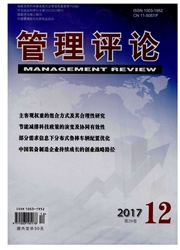

 中文摘要:
中文摘要:
本文从货币政策与股票价格波动交互影响的视角出发,构建两者交互影响机理的理论框架,并建立施加短期约束的结构式向量自回归(SVAR)模型,实证分析了2000—2012年中国货币政策与股票价格波动的交互影响效应。我们研究发现中国货币政策与股票价格存在双向作用关系,但两者交互影响的显著性有所区别。总体上,货币政策对股票价格的影响显著,股票价格波动对货币政策能够产生一定程度的影响。其中,狭义货币供给量M1与股票价格的交互影响关系表现更为密切,利率的影响效应不够显著。最后,提出本文实证结果的重要政策涵义。
 英文摘要:
英文摘要:
On the basis of the theoretical framework of interaction mechanism of monetary policy and stock price volatility, this paper builds SVAR model with short-term constraints and studies the interactive effects of China's monetary policy and stock price from 2000 to 2012. The result shows that there are interactive effects between monetary policy and stock price, but the interaction degree of them is different. On the whole, monetary policy significantly affects the stock price, and the volatility of stock prices can influence monetary policy to a certain extent. Furthermore, M1 and the stock price have more closely interactive relationship, and the role of money market rates is not significant. Finally, the paper gives important policy implications of empirical results.
 同期刊论文项目
同期刊论文项目
 同项目期刊论文
同项目期刊论文
 期刊信息
期刊信息
